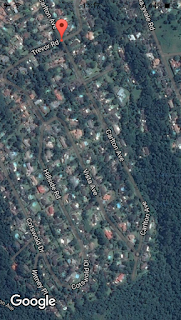When stuff happens often, we get to know a lot about it. The '
Law of Large Numbers' means it will become very predictable, not for the individual, but on average. The best example is death. Permit me a bad joke about actuaries. A normal actuary can tell you how many people are going to die next year, a Sicilian actuary can give you their names.
Everyone dies and the big ticket factors that predict when this is going to happen are well known. Your gender, age, income level and smoker status are the main ones used by insurance companies. Normally there will also be
different predictions in different countries.
The probabilities change slowly and in reasonably predictable trends.
Most of our news and stories come from Outliers. An Outlier is someone who is so different from the average, their individual experience can actually shift the average. Warren Buffett is an Outlier. Roger Federer is an Outlier. The experience of these individuals is so far removed from the normal person that it is very difficult for us to learn lessons from what they achieved. Knowing what combination of factors led to results, good or bad, is hard to tell when someone is a
unique snowflake.
It would be better if news and stories were about very average events and trends.
Malcolm Gladwell wrote the book 'Outliers' where he popularised the idea of putting in 10,000 hours in order to become world class at something. Matthew Syed wrote further on the issue, putting more emphasis on the power of purposeful practice. Daniel Goleman zooms in on the science of attention. Gladwell sometimes gets 'debunked' by people saying he is arguing that anyone can just put in 10,000 hours and be world class. Not so. He does talk about purposeful practice and focus, but the thrust of his argument is that
effort and hours in are a bigger contributor than we let on. It is trying to break down ideas of talent where we think you should be good at something early on, or you never will be. He argued that you don't find world class people who haven't 'put in their 10,000 hours'. You also don't find people who aren't world class, but have 'put in their 10,000 hours'. Most people give up earlier than that. There are people who just go through the motions (e.g. driving), but automatic pilot hours don't count.
This idea is almost impossible to test. Dan McLaughlin is trying to test it. He quit his job in April 2010 and is almost 6,000 hours into purposefully practicing Golf (having had zero previous experience). Succeed or fail, he is just one guy. He will still be an outlier. We will still not know much about the drivers of extreme success or failure unless there were lots of Dan McLaughlins who gave it a go.
We know lots of people who succeed in things started early, often very early. Some will say you need to put your 10,000 hours in before the age of 10. We quite simply do not know that. There are not enough people who put the hours in after that for us to test the idea. Those who believe the 'before 10' idea may be tempted to become Tiger Parents, driving their kids (perhaps vicariously) to attempt success. Amy Chua tried, and wrote a controversial book about the difficulty of doing this in a liberal society.


My own view is that the before 10 thing is wrong. I think if we could test it, Goleman-Syed-Gladwell would be proven correct that we aren't even scratching at the surface of what we could achieve if purposeful practice were a bigger part of our everyday lives. I don't think the 'world class' benchmark is necessary. For ourselves, there are all sorts of things we write off far too quickly because we haven't achieved them as easily as we would like. We could test what could be achieved with putting in
100 hours of purposeful practice. Then our story wouldn't be driven by the outliers. Outliers make us think it's too late. It's never too late to lead a richer, more fulfilling life.
One example is languages. We claim kids learn languages more easily than adults, but we really don't know that. We have 7 billion people (kids and older) who have learnt, or are dedicatedly learning, a mother tongue. You learn a mother tongue patiently, over a number of years, with lots of love and support. We really don't know how adults would respond with the same focussed attention. The same deep, focussed immersion in the culture, song, stories, and relationships built around a language.
The biggest advantage kids have is they aren't busy. Kids are time rich. Time is priceless.



































